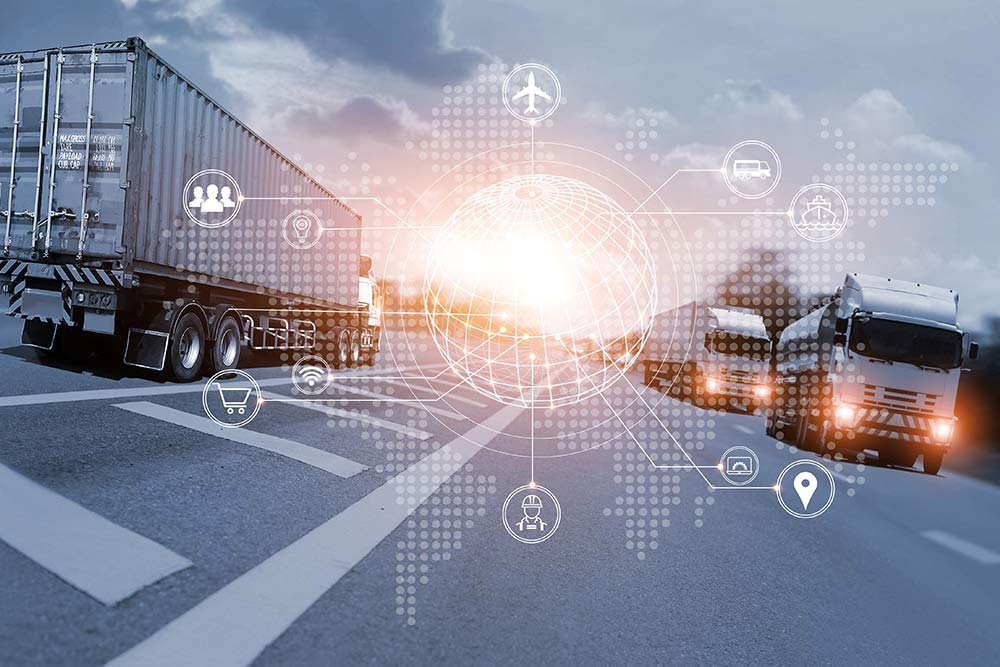What the Autumn Budget means for the logistics sector
04 Nov 24
Read more →

Due to the pandemic, most logistics firms have been in ‘survival mode’, however, it’s important that companies continue to innovate with forward-thinking digital solutions. While the complete renovation of an archaic system may seem a daunting step to undertake at the present moment – it is crucial that the huge opportunities for confidence restoration and future growth are considered.
The concept of AI and The Internet of Things (IoT) might seem completely foreign to more traditional hauliers, but in truth – you don’t need to be technologically fluent to participate in the automation revolution. These advancements provide too many incredible benefits for the industry to be ignored.
The past 10 months have proven complicated for transportation companies. The upsurge in demand for specific items (including PPE) has pressured supply chains to increase sourcing exponentially. Organisations not experienced in having staff work from home also suffered, as they struggled to supply IT equipment and provide remote access to files for employees.
Businesses already kitted out with a transport management system proved to be far more readily adjusted to the problems imposed by the pandemic. The technology within an integrated system collates essential data from the business, suppliers and other third parties – thus enabling firms to hasten informed procurement decisions. The digitally compiled business overview also enables companies to find replacement suppliers quickly in the event of a failure or crisis.
The rise of data-driven technology has given organisations a 360-degree view of their supply chains. This has enabled remote collaboration with suppliers, so they can assess their overall vulnerabilities and conduct contingency planning.

Connected vehicles, shipments and systems help with tracking as well as historical reporting, but real-time insights and responses occur through artificial intelligence. AI assesses the collected data and helps the connecting ‘thing’ – be it the vehicle or inventory system – make smarter decisions. This form of automated decision-making is proving to be indispensable in transportation management.
In order to function correctly in a logistics setting, AI will require data regarding the entire supply chain. While the majority of haulage operations are not on the scale to enable them to participate in the first wave of artificial intelligence – by making their consignment data available in real time to their clients and clients’ clients, businesses can fill substantial gaps in the overall data chain.
Important decisions beneficial to entire supply chain can be made based on this real-time data. Using a cloud-based system allows this spectrum of information to be accessed from the office, the warehouse, home or via their mobile – ideal in the era of remote working.
Automating as much of the transport process as possible enables operations to gain further efficiency in 24-hour vehicle utilisation. Transport management applications help improve visibility and provide information that enables organisations to make secure business decisions.
As the prime instigator of delays, accidents and wasted fuel – traffic has always been the ultimate disruptor of transportation. Thankfully, the advent of artificial intelligence has enabled hauliers to employ prediction techniques based on real time traffic data – including insights into congestion surrounding sporting events or construction work in a city. Referring to this deluge of information, the technology can automatically calculate faster alternative routes.

The future of procurement and logistics is one of dramatic change, with a shift to a new data-driven strategic focus and automation of routine. At TrackTrans, we help drive your operation streets ahead of the competition!
Our easy-to-use transport management system has a number different routing algorithms depending on your particular circumstances. With flexible routing, our solution allows anything from route optimisation of a single driver, to routing and scheduling all of your consignments across your entire fleet at once.
With enough speed to be used in real-time, TrackTrans allows you to add constraints of your choosing – such as delivery times, weights and traffic. This data enables our system to calculate a highly accurate plan customised to your operation.
To get a feel for TrackTrans – try out our free demo today!
See how TrackTrans can be tailored to your business with no obligation. Simply complete the form and a member of our sales team will contact your directly.